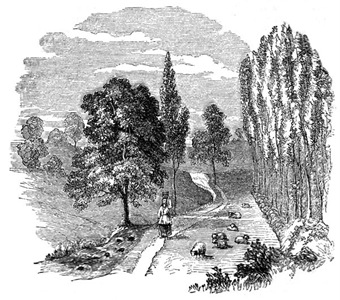 Back in the day, when we still played games like Warhammer Fantasy Roleplay 1st Edition, character advancement was more than just picking new skills and talents, or improving the stats. Often the characters had to undertake long travels to get to an appropriate trainer that could help the character to get into a new career. Usually these trips where quests in their own right, which were pursued besides the actual adventure.
Back in the day, when we still played games like Warhammer Fantasy Roleplay 1st Edition, character advancement was more than just picking new skills and talents, or improving the stats. Often the characters had to undertake long travels to get to an appropriate trainer that could help the character to get into a new career. Usually these trips where quests in their own right, which were pursued besides the actual adventure.
Some RPGs still list an appropriate trainer under the requirements needed to be fulfilled before a new ability can be picked up, but – when I am not totally mistaken – most don’t. I guess this is just one of the things that have been streamlined away over the years. And this is not necessarily a bad thing, since the method I mentioned can easily lead to frustration on part of the players.
An inexperienced GM might not allow characters to get access to certain abilities or there’s just no way the characters can go on a side trip to purchase new skills. But in a lot of RPGs acquiring new abilities and improving existing ones is one of the main incentives for players.
On the other hand, when done right, making character advancement quests in their own right can be a very powerful tool at the GMs disposal. During a journey to that old wizard who supposedly can teach the spell-casters of the party a few new tricks, the GM can easily introduce new lands or NPCs to the campaign, let the players face some new challenges or drop some hints that may later help them with the “main quest” at hand. These side trips are perfect opportunities for role-play or can be employed when not all players could make it or the GM is not fully prepared.
In addition to that players get more attached to their characters when they had to make an effort to get their abilities. Its the same as with treasure. The sword found in the hoard of an evil dragon the party has slain is much more memorable than the one found in a random barrel somewhere.
Forcing player characters to actually “work” for their advancement might be an old-school concept but it can be a powerful tool for GMs and help players to immerse into the game. If you haven’t tried this technique I wholeheartedly recommend it.

This is a reason I like some independent games such as The Burning Wheel or Dogs in the Vineyard: character abilities grow organically out of the play experience.
But with general experience point-based systems, I like the idea less. There's naturally the old saw about how a bard killing monsters somehow makes her play the didgeridoo better, but I view that as an issue of the story versus the mechanics. If someone is playing a bard, it is only natural she should be given opportunities to practice her musical craft in the course of the story… whether or not she gets experience for this should depend on the system, not the story, in my view.
I have always been fond of the PCs seeking out people to learn new and interesting things, don't get me wrong. I'm just uncertain about withholding class abilities for any length of time. Say they go off to learn the new thing… are they going to gain experience during that time? The next level isn't too far away in most modern RPGs, so what if they level up during their quest to get their powers for the current level?
I believe this worked in Old School games because there was rarely any actual improvement in one's character. Levels were long, abilities were negligible, and characters died a fair amount. Which some might argue has its own charm. I'm just uncertain it ports well into many modern experience point-based RPGs.
I agree that this idea doesn't work with all games. Especially in level-based games like D&D where you are entitled to get certain class abilities at certain levels this might not work so well.
And I would never ask a player to find a trainer just to improve an existing skill. But if you want to pick up a new skill, it's a totally different matter.
But of course your mileage may vary.
This idea does work very well with Warrior, Rogue, and Mage, though. Especially since advancement isn't based on a rewards-per-encounter system. I encountered that kind of idea first in Blue Rose by Green Ronin, and it absolutely blew my mind. Needless to say I like it a lot in WR&M too.
If I were playing a game like that, as a player, I would probably be more happy letting advancement be in my hands rather than the GM's. That way I can set my own goals and say, well, okay I went and found the Speaker of Sharks and spent the last two months under her tutelage, so I learned Athletics from all the swimming I had to do.
Some GMs may clutch their chests in fear at players being allowed to advance their characters when they want, but… that's a point for another day!